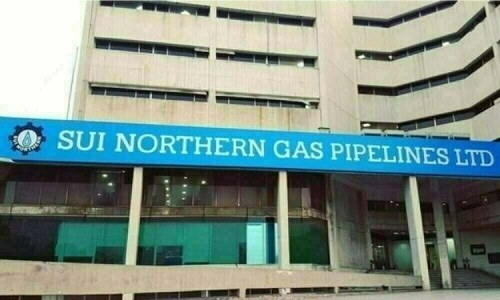SNGPL’s Proposed Tariff Hike Sparks Industry Opposition
Sui Northern Gas Pipelines Limited (SNGPL) has stirred debate with its proposal to elevate its transportation tariff by 50 percent. This proposition has met strong opposition from industry participants, who caution it could destabilize the newly established competitive market open to private sector involvement.
During a public session convened by the Oil and Gas Regulatory Authority (Ogra), it was revealed that SNGPL’s operational spending had significantly increased. Despite persistent gas deficits, expenses grew from Rs66 billion in 2019-20 to Rs94 billion in 2023-24, while profits saw a near doubling, reaching Rs38.9 billion.
Industry figures, such as Universal Gas Distribution CEO Ghyas Paracha, voiced worries that the suggested tariff increase would harm private sector prospects, potentially reinforcing SNGPL’s market dominance and hindering market rivalry.
“The worsening gas supply situation is intensified by inefficiencies; yet, SNGPL’s earnings continue their upward trend,” Paracha commented, urging Ogra to perform thorough audits of state-run utilities and implement standard guidelines for unaccounted-for gas (UFG) losses.
Private sector representatives have endorsed broad market liberalization, expressing their readiness to supply gas directly to residential consumers. Such a move could alleviate the LNG glut, which has caused a decrease of 400 mmcfd in domestic gas provision.
Critics contend that the existing tariff system, which relies on a set return model, disconnects company earnings from the actual gas quantities conveyed. “SNGPL’s service area is diminishing due to the rise in alternative energy usage, yet expenses and returns remain unusually elevated,” Paracha stated.
Proposed Reforms
- Implementing a market structure featuring multiple suppliers and buyers to maximize infrastructure usage and foster competition.
- Revamping SNGPL’s organizational and accounting practices to boost transparency and efficiency.
- Replacing the current asset base return formula with a fixed margin for each MMBTU transported.
- Introducing a fixed, multi-year transportation tariff linked to inflation and subject to yearly regulatory checks.
The All Pakistan Textile Mills Association (APTMA) has signaled its backing for comprehensive gas market liberalization, advocating for the elimination of supply restrictions on private businesses. They also suggest distinct benchmarks for LNG vendors, highlighting concerns about LNG cargo diversions amid local shortages.
Ogra Chairman Masroor Khan emphasized the regulator’s responsibility in balancing consumer benefits with investor compensation, noting that Rs141 billion in assistance has been provided to SNGPL customers over the last five years.
SNGPL’s General Manager of Operations, Saqib Abbas, justified the company’s stance, stating that tariff determinations are beyond the utility’s control and prompted Ogra to redistribute cross-subsidy burdens to private shippers.



Comments (0)
No comments yet. Be the first to comment!
Leave a Comment